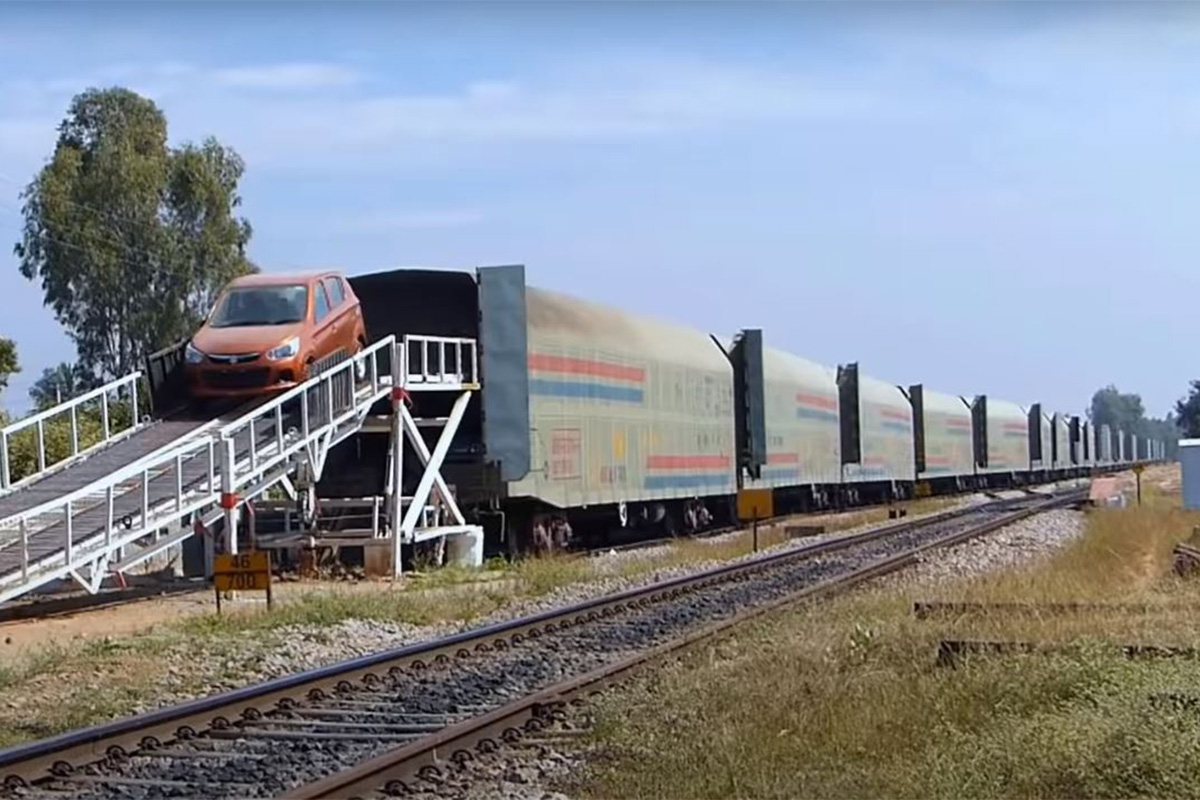Mahakumbh: Railways work ensure devotees have smooth journey
Despite continued heavy rush, Indian Railways is working on war footing to serve the devotees by bringing them in and taking back their home during the ongoing Mahakumbh.
Transporting cars via rail mode is also helping the country’s largest passenger car maker offset nearly 3,000 tonnes of carbon emissions, MSI said.

Maruti Suzuki is the first auto manufacturer in the country to obtain automobile freight train operator licence. (Photo: Youtube/@therailzone)
Maruti Suzuki India (MSI) on Wednesday said it has transported over 6.7 lakh cars through the Indian Railways in the past six years, witnessing a compound annual growth rate of over 18 per cent.
Transporting cars via rail mode is also helping the country’s largest passenger car maker offset nearly 3,000 tonnes of carbon emissions, MSI said.
Advertisement
The first dispatch of the company’s vehicles by double-decker flexi-deck rakes took place in March 2014.
Advertisement
In addition, over 100 million litres of fossil fuel was saved, as the company could avoid over 1 lakh truck trips on the national highways, it added.
During the last fiscal, over 1.78 lakh cars were dispatched through the rail mode, a 15 per cent increase over previous year, the auto major said.
This accounts for nearly 12 per cent of total sales of the company in the year.
“Considering the increasing volumes, our team felt the need for large scale logistics flow. We realised that not only for expansion but also for risk mitigation, we have to look beyond road mode logistics,” said Kenichi Ayukawa, Managing Director and CEO of Maruti Suzuki India.
Maruti Suzuki is the first auto manufacturer in the country to obtain automobile freight train operator licence. This allows private firms to fabricate and operate high speed, high capacity auto wagon rakes on the Indian Railway’s network.
The automaker started the initiative with single-deck wagons which have a capacity to handle 125 cars.
It then shifted to double-decker rakes which have a capacity of 265 cars and till date over 1.4 lakh cars have been dispatched through these rakes.
The company now utilizes 27 rakes that can be operated at high speed of around 95 km/hr with each rake having a capacity to accommodate 318 cars.
MSI said it is the first auto manufacturer in the country to obtain Automobile Freight Train Operator (AFTO) license.
This allows private firms to fabricate and operate high speed, high capacity auto-wagon rakes on the Indian Railway’s network, it added.
At present, Maruti Suzuki utilises five loading terminals- Gurugram, Farukhnagar, Kathuwas, Patli, and Detroj and 13 destination terminals – Bengaluru, Nagpur, Mumbai, Guwahati, Mundra Port, Indore, Kolkata, Chennai, Hyderabad, Ahmedabad, NCR, Siliguri and Agartala, MSI said.
With the addition of Agartala, the reach of rail mode has now been extended to far Northeast, it added.
“It has helped to reduce the transportation time to these states by nearly half,” MSI noted.
Advertisement